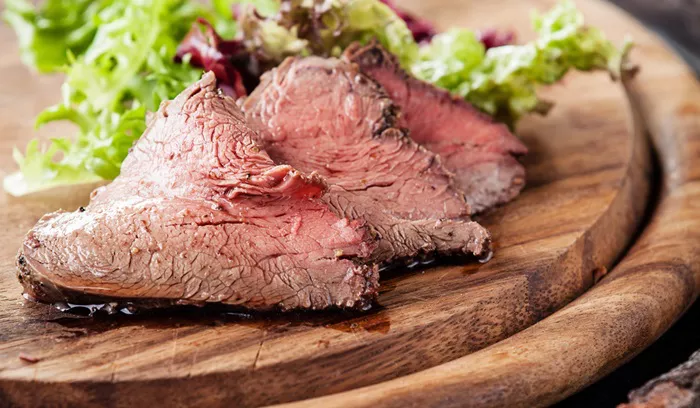Many people are choosing to reduce or completely eliminate meat from their diets for a variety of reasons. Whether it’s for health benefits, ethical concerns, or environmental impact, transitioning to a plant-based diet can have significant effects on your body. In this article, we will explore what happens to your body after you stop eating meat, examining the physical, mental, and long-term effects that occur. We’ll also provide insights into maintaining a balanced diet and fitness regimen post-transition.
Immediate Physical Changes After Cutting Out Meat
When you first stop eating meat, your body may undergo several noticeable changes. These changes vary depending on your previous diet, lifestyle, and how you replace meat with other food sources.
Improved Digestion
One of the most immediate changes you may notice is improved digestion. Meat, especially red meat, is difficult to digest due to its high protein and fat content. Without meat in your diet, your body will start digesting food more efficiently, which may reduce bloating, gas, and constipation.
Increased Energy Levels
Many people report feeling more energized after eliminating meat from their diet. This could be due to the fact that plant-based foods, which are rich in vitamins, minerals, and fiber, provide a steady source of energy without the sluggish feeling often associated with heavy, meat-based meals. Additionally, cutting out meat can reduce inflammation in the body, leading to less fatigue.
Short-Term Health Benefits of Going Meat-Free
Aside from immediate changes, stopping meat consumption can result in a range of short-term health benefits that might take a few weeks to fully manifest.
Weight Loss
When you stop eating meat, many individuals find that they naturally lose weight. Meat is calorie-dense, and when replaced with fruits, vegetables, legumes, and whole grains, your caloric intake may decrease, leading to gradual weight loss. Additionally, plant-based diets are generally lower in saturated fats and higher in fiber, which helps you feel fuller longer.
Better Skin Health
After cutting out meat, some people experience clearer skin. This could be due to the reduction in dairy and processed meats, which are known to contribute to acne outbreaks. Plant-based foods are rich in antioxidants and vitamins, which support skin health and can reduce inflammation and acne.
Long-Term Effects of a Meat-Free Diet
While the short-term changes are noticeable, the long-term effects of not eating meat can be even more profound. Over time, your body adapts to the new diet, and you may notice significant improvements in your overall health.
Heart Health
One of the most significant long-term benefits of cutting out meat is improved heart health. A plant-based diet is typically lower in cholesterol and saturated fat, two key contributors to heart disease. Studies have shown that individuals who follow plant-based diets have lower blood pressure and a reduced risk of heart disease.
Improved Mental Health
Interestingly, some people report improvements in their mental health after going meat-free. The increased intake of fruits, vegetables, and whole grains has been linked to better mood and reduced anxiety. Furthermore, many plant-based foods are rich in nutrients like magnesium and omega-3 fatty acids, which support brain health and reduce symptoms of depression.
Lower Cancer Risk
Research has shown that cutting out red and processed meats may lower the risk of certain cancers, particularly colorectal cancer. The World Health Organization has classified processed meats as carcinogenic, and studies suggest that those who avoid meat have a lower incidence of cancer over time.
Challenges of a Meat-Free Diet
While the benefits are many, it’s essential to be aware of some challenges that come with a meat-free lifestyle. Making sure you are getting the right nutrients is key to maintaining a balanced diet.
Protein Deficiency
One of the most common concerns when eliminating meat is getting enough protein. However, there are many plant-based protein sources, including beans, lentils, tofu, quinoa, and nuts. As long as your diet is diverse and well-planned, you can easily meet your protein needs without meat.
Vitamin B12 Deficiency
Vitamin B12, found naturally in animal products, is vital for nerve function and red blood cell formation. If you stop eating meat, it’s important to supplement your diet with fortified foods or B12 supplements to avoid deficiency, which can lead to fatigue, weakness, and neurological issues.
How to Maintain Fitness and Diet After Stopping Meat
Staying healthy after eliminating meat involves more than just avoiding animal products. A balanced approach to nutrition, especially if you’re also focusing on fitness, is essential. For example, after a workout, consuming healthy meals is crucial for recovery.
Incorporating Plant-Based Foods for Optimal Performance
Plant-based foods can provide the energy and nutrients necessary to support your fitness goals. Including a variety of vegetables, legumes, whole grains, and plant-based protein sources in your meals can help maintain muscle mass, aid in recovery, and enhance overall performance. Planning your meals is key to maintaining a balanced diet after cutting out meat. Focus on incorporating a variety of food groups, and be sure to include nutrient-dense options.
Conclusion
Transitioning to a meat-free diet can have numerous health benefits, from improved digestion and weight loss to a lower risk of heart disease and cancer. However, it’s important to stay mindful of nutrient intake, particularly protein and vitamin B12. By ensuring your diet is balanced and supplemented where necessary, you can enjoy the long-term benefits of a meat-free lifestyle. Remember, a well-rounded diet combined with a fitness regimen can help you achieve optimal health and well-being after eliminating meat.
Related Topics:
What Should I Eat for 80 Calories


